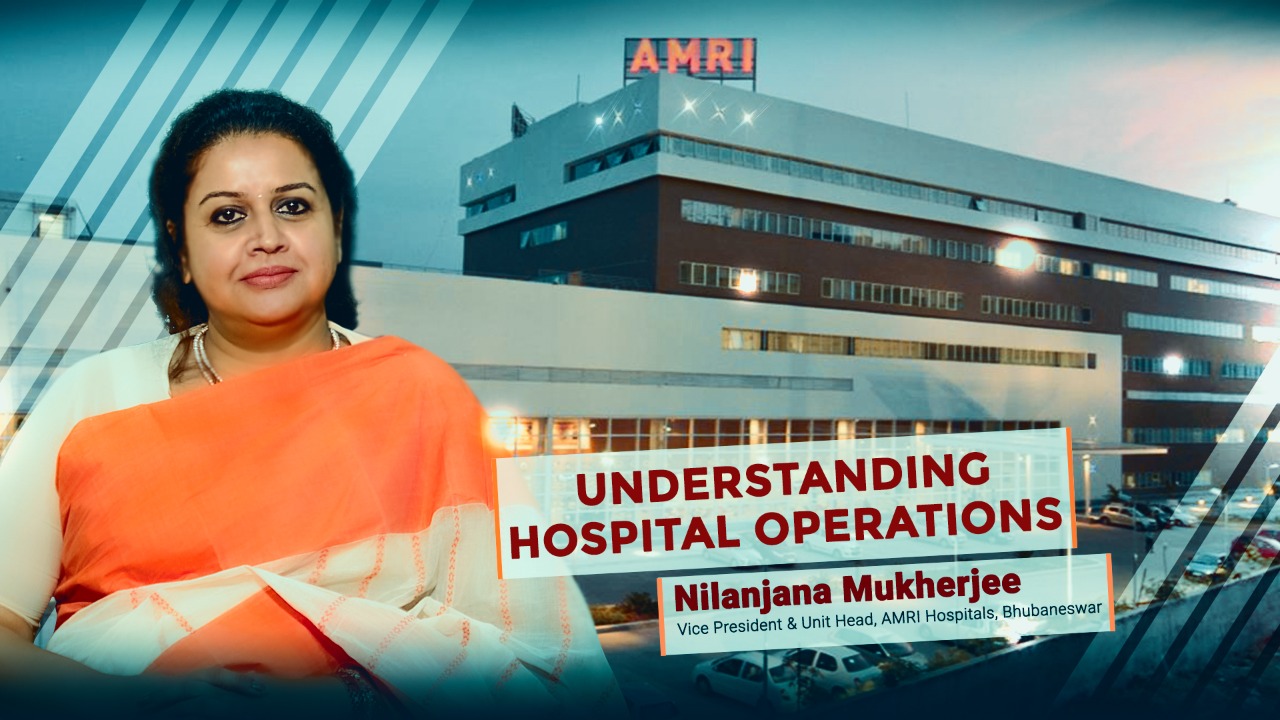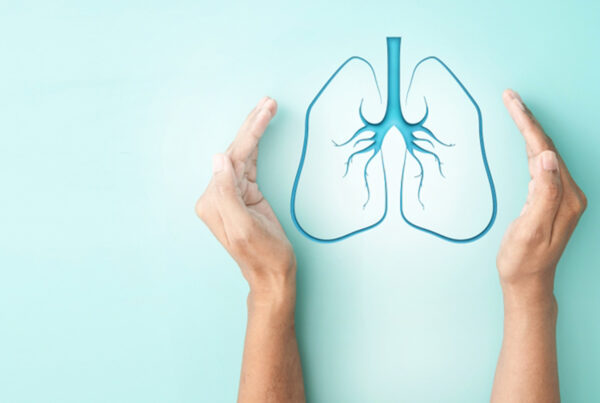Bhubaneswar: Operations management in hospitals deals with overseeing the day-to-day practices of the healthcare facility that impact a patient’s experience and organizational goals. To know more about Hospital Operations, Swasthya Sambad had an exclusive conversation with Nilanjana Mukherjee, Vice President & Unit Head, AMRI Hospitals, Bhubaneswar. Excerpts:
You started your career with Taj Group of Hotels and now you are associated with AMRI Hospitals. How has been your journey so far?
Hotel and hospitals come under the hospitality industry. Today the patients who come to the hospital, especially the private corporate hospital which I would say are at par with four star or five star level, the demand is as equivalent to a hotel guest.
In hospital you get to meet people who are not in pleasure, they come to you because they are in pain. So with the ‘WOW service’ or high quality service, you need to add a little bit of empathy & sympathy. Along with that a lot of statutory compliances are also mixed with the service as far as hospital is concerned. So my journey from the hotel to hospital has been a commendable journey. What I’ve learnt from working with Taj Group was ‘standard’. So to bring in that standard with the kind of medical care which we can is a mingling of both.
Today if you see the suite room of AMRI, it is as good as a Taj suite room. The only difference is the guest is an unhealthy person or a patient. The actual finesse of a room will be understood when you have the experience of working in a hotel. There are hospitals where I have visited which have a suite room tariff of 2 lakhs – 3 lakhs per day. So you can imagine, that sort of demand is there. People are willing to pay.
What are the biggest challenges as far as hospital operations is concerned?
The biggest challenge I would say is to balance between the need of the patients and the need of the doctors. I have always believed that patients are our customers but doctors are also our customers. The reason I’m saying this is unless you give doctors the comfort and support to work, end of the day the doctor will not be able to do justice with the patient. So my journey as a unit head in this hospital has been to ensure that my doctors are very comfortable.
The second challenge is to keep the entire staff motivated. Because we belong to an industry where there is so much of negativity around, there is hardly any happiness. We see deaths happening every now and then.
The third challenge that I would like to emphasize is skill development. This industry needs good skilled workers. Not just doctors, nurses and technicians but also paramedics and managerial staff to manage various departments of the hospital. So skill is one area this industry is in dire need of.
How do you motivate your employees to perform in the most effective & efficient way?
We have divided this into two parts, the first being Reward & Recognition. For example, when a customer comes and mentions about a particular employee, we congratulate the employee by putting their pictures in our ‘Hall of Fame’ which is kept in the lobby.
Secondly, we have an R & R programme which is done by the HR and the departmental heads where they select a deserving person for a reward. There are outsource employees who are in the hospitality, security etc whom we also give rewards separately. In fact, there is also a reward for Best Dressed employee, best new joinee etc.
Apart from this we also have something called Clinical Excellence Reward. When we take a Patient Safety Round, during the audit we find a lot of doctors, nurses and staff who strictly follow the hospital protocols. We make sure to give them reward instantly.
The second part of motivation is where we build or highlight the practice of the doctor. Suppose a doctor is an expert in a particular type of surgery. We don’t expect the doctor at AMRI to market his skills or do the branding of his clinical expertise instead we promote him, give him the right exposure and we conduct a proper strategy programme on that. This is how we build up their practice of doctors here at AMRI.
How important is it for a doctor to get emotionally attached with his/her patient?
Every single doctor is very emotionally attached. Honestly speaking, the picture that is at times projected outside that a patient died due to doctors’ negligence, believe me, the doctor gives each and every bit of his energy to save the patient. Any doctor whose patient dies, trust me the doctor is never happy or satisfied with it. There is always a guilt within a doctor for not being able to save. I have been in this industry for 20 years and I have never seen a doctor not being emotionally attached with his/her patient.
How does the administration of a hospital functions?
Hospital administration has become a very technical subject. Today even AIIMS is giving MD degree in hospital administration. It has become a much defined technical area. There are two parts of hospital administration. First being ‘clinical excellence’ which deals with clinical outcome, low death rate, infection control management, and timely treatment in emergency. The second area is the ‘non-clinical part’ which deals with upkeep of the hospital, cleaning and maintenance of the hospital, finances and front office. Apart from this, there is one side called ‘Return of Investment’. This is the finance part where we have to make the hospital viable.
What has been the impact of Covid-19 on hospitals especially from a business point of view?
As far as business is concerned, the impact was not positive at all. One good thing the Government of Odisha did was they made the treatment process into packages. So we did not actually unnecessarily charge a patient because everything was structured.
Yes, we were the only industry which was earning during the peak of the pandemic but there was a time where we did not earn and we had to cut down salaries because the non-Covid patients did not come.
Now, Covid also came with a lot of expenditure for AMRI hospitals. For example, when Covid first started, PPE kits were very expensive and the cost of each mask was close to Rs 500, which later came down to Rs 19. We had to bear a lot of expenses due to operating cost.
Talking about the positives, second wave was different and financially we balanced things out. We were blessed as we were the only industry that functioned.
What lead to the success and growth of AMRI Bhubaneswar within a short span of time?
During the first wave of Covid, we had about 150 Covid beds. We were confident about dealing with the situation as there were a lot of beds available in the state-run covid centres. However, the second wave was unthinkable. We opened 250 beds, 102 ICUs within 24 hours. Our critical care team did a commendable job.
I am associated with AMRI since 2015 where we had hardly 30 beds. Today we have 400 licensed beds and we have grown almost 128%. The main mantra behind AMRI’s success is Customer Service. If your leader believes in the service industry that ‘customer is first’, you will always grow! Along with this, the main reason behind AMRI’s success is medical and non medical operations.




